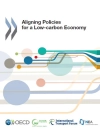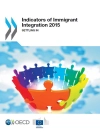In a world that is grappling with soaring energy costs, widespread inflation, armed conflicts, and the looming specter of trade wars, world leaders and pundits are actively seeking transformative paradigms to usher in a sense of stability, many of them envisioning a reimagination of capitalism. This volume offers a unique Eastern European perspective on this phenomenon. Featuring select contributions presented at the 13th Annual Griffiths School of Management & IT’s Conference on Business, Entrepreneurship and Ethics (GSMAC 2023), this book explores the future of innovation, digital entrepreneurship, digital leadership and management, stakeholder capitalism, corporate social responsibility, among other areas. The enclosed research identifies challenges of the new social, economic, and technological paradigms companies are facing and offers concrete solutions.
Inhoudsopgave
1. Management approaches of stakeholder capitalism and digital leadership in the 21st century.-2Adventure Tourism – Manifestation of Human Personality in a Post-Globalization World – a Forecast of it Using Artificial Intelligence.- 3. Labor productivity in the context of working from home – an analysis of the last years at the European Union level.- 4. A Bibliometric Analysis Regarding Generation Z Trends on Entrepreneurship.- 5. Digital Entrepreneurship and Its Contribution to Economic Growth in Eastern and Central Europe: An Empirical Analysis.- 6. The Future of Innovation and Creativity in an Era of Artificial Intelligence.- 7. Discrepancies in demand and production of intellectual capital: Can we reimagine capitalism to bridge the gap.- 8. Knowledge Management from the Perspective of Modern Economic Organizations.- 9. Strategic Management Practices of Romania’s SMEs in the Digital Era.- 10. The application of competency management to the recruitment and selection of civil servants.- 11. Fake News and Its Target – the Consumers: a Persuasion Episode, in a Post-globalization Context. Extrapolations from Friestad and Wright’ s Persuasion Knowledge Model.- 12. How to interpret the TBL in the case of Tesla, Inc.- 13. Accounting estimates linked to artificial intelligence in a Volatile, Uncertain, Complex, and Ambiguous reporting environment – A bibliometric approach.- 14. Reactive programming. A brief analysis in the context of programming paradigms.- 15. Economic Evaluation of Microalgae Production Costs a Perspective of Sustainable Development.- 16. Corporate Social Responsibility as a reference tool in career development.- 17. The role of circular economy in mitigating greenhouse gas emission.- 18.Implications of Educational Poverty in a Post-Globalization World.- 19.Income Inequality and Economic Growth.- 20.Convergence in Life Expectancy.- 21.Legal, Ecclesiological and Economic Perspectives on the Notion of Family and its Role in the Development of Society and the State.- 22. The Humanitarian Crisis in Ukraine, a Challenge for Europe.- 23.Can Supreme Audit Institutions in the European Union, Impact how Governments Respond to the Sustainable Development Goals?.- 24.Challenges of Cultural Diversity for Multinational Corporations – Analysis of the US through the Major Value Dimensions.-25.Asymmetric Effects of Inflation in Romania Based on Nonlinear Autoregressive Distributed Lags Approach.- 26.Patterns of Artificial Intelligence Adoption in Small and Medium Businesses.- 27.From Boomers to Zoomers: Challenges in Managing the Multi-Generational Workforce.- 28.The Role of Clusters – Past, Present and Future of the Pannon Thermal Cluster.- 29.Fake News, a Possible Reason Against Consumers’ Intentions to Adopt New Technology? Persuasion Knowledge and its Moderating Effect.- 30.Reinventing the Professional Accountant in the Digital Age.- 31.Investigation of Natural Resources as Natural Healing Factors with Role in Health Tourism in Transylvania.- 32.Current Trends of the Soft Development Activity Through the Implementation of Reactive Programming.
Over de auteur
Silvia L. Fotea is a Lecturer in the Griffiths School of Management and IT at the Emanuel University of Oradea, Romania.
Sebastian A. Văduva is Chair of the Griffiths School of Management and IT at the Emanuel University in Oradea, Romania, as well as a management scholar with numerous active ties, academic and entrepreneurial, in both Europe and the United States. He has developed various seminars on leadership and effective management on both micro- and macro-economic levels and is behind several programs intended to boost Romanian economy by drawing in international investors and business partners.
Ioan Ş. Fotea is an Associate Professor and Dean of Griffiths School of Management and IT at the Emanuel University of Oradea, Romania. He is the coordinator of Emanuel University’s Master in Entrepreneurial Management program and owns Advanced Solutions Ltd. (Oradea, Romania), an international business consultancy firm, while actively participating in various domestic and international business and social projects.












